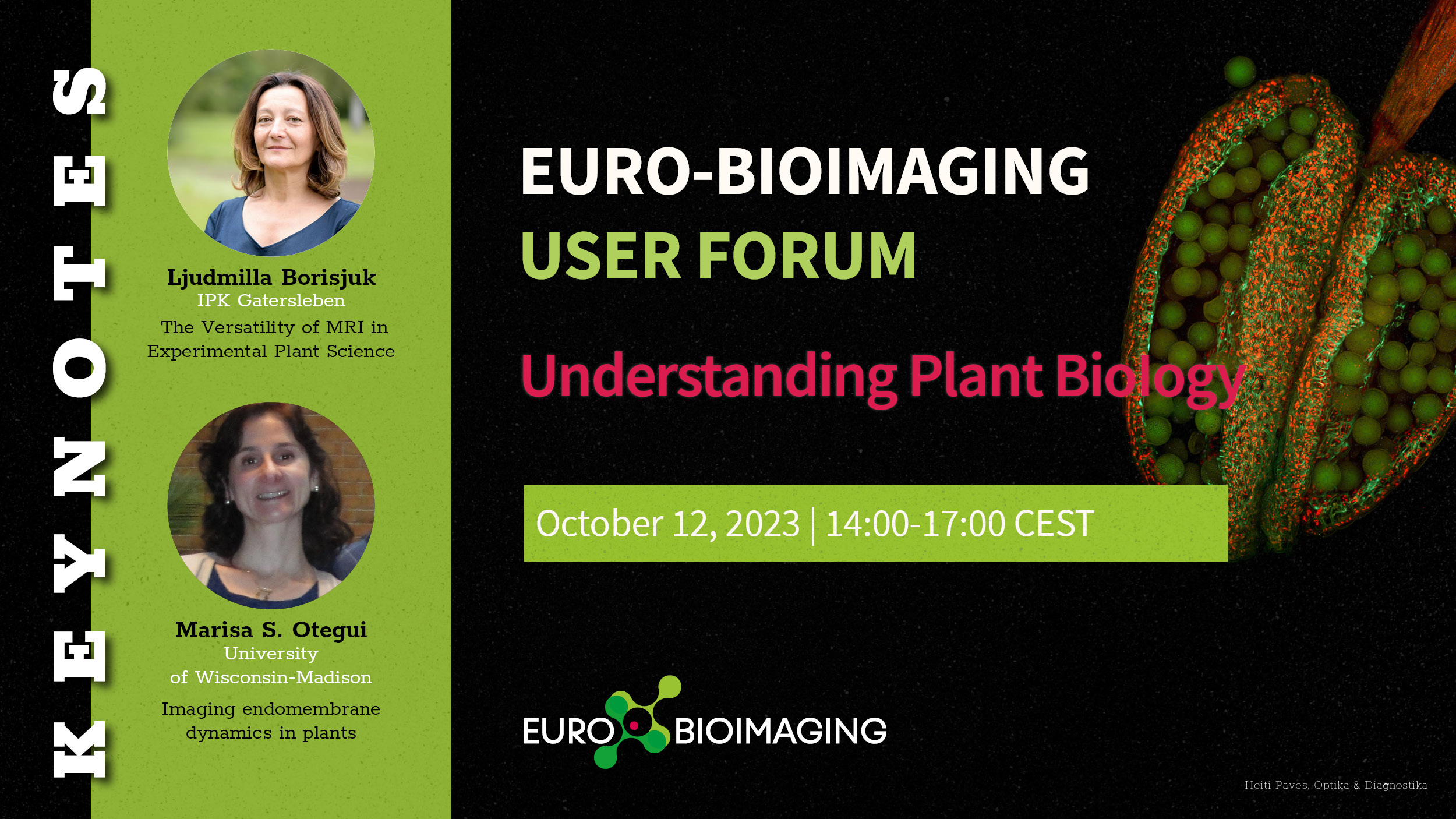The Versatility of MRI in Experimental Plant Science
Published: 2023-09-20
Imaging technologies support research into the structure and function of plants, shed light on plant health, resilience and adaptability, and help answer agroecology-related research questions. The Euro-BioImaging User Forum “Understanding Plant Biology” will showcase how imaging supports cutting edge research in this domain and provide information on funding opportunities for agroecology-related research projects via the AgroServ project. At this event, our keynote speaker, Ljudmilla Borisjuk, Leader of the research group Assimilate Allocation and MRI, Leibniz-Institute of Plant Genetics and Crop Plant Research (IPK), will present “The Versatility of MRI in Experimental Plant Science.” Full abstract below.
What: Euro-BioImaging User Forum “Understanding Plant Biology”
When: October 12, 2023, from 14:00-17:00 CEST
Where: Online
The Versatility of MRI in Experimental Plant Science
Ljudmilla Borisjuk
Leader of the research group Assimilate Allocation and MRI, Leibniz-Institute of Plant Genetics and Crop Plant Research (IPK), Corrensstrasse 3, 06466 Seeland-Gatersleben, Germany
Magnet resonance imaging (MRI) is one of the most versatile technologies in experimental medicine and is now beginning to make a significant contribution to the in vivo visualization of the inner life of plants. What is it about MRI that sets it apart from other imaging modalities, and what is driving its growing role in experimental design? The aim of Ljudmilla Borisjuk’s talk is to present the current state of the art in plant MRI and to discuss the various advantages and limitations of MRI technology. She will share her group’s expertise in plant MRI, including 3D visualization of the architecture of complex plant organs, deposition of metabolites and storage compounds, and dynamic imaging. Today, MRI allows monitoring of assimilate allocation in plants and observation of intimate processes occurring during seed development and germination. The incorporation of artificial intelligence can encourage novel strategies to aid breeding and facilitate our understanding of how plants respond to a dynamic environment. Various examples of advanced applications show how the enormous potential of MRI can contribute to progress in plant science.
More information about RG Assimilate Allocation and MRI:
https://www.ipk-gatersleben.de/forschung/molekulare-genetik/assimilat-allokation-und-nmr
